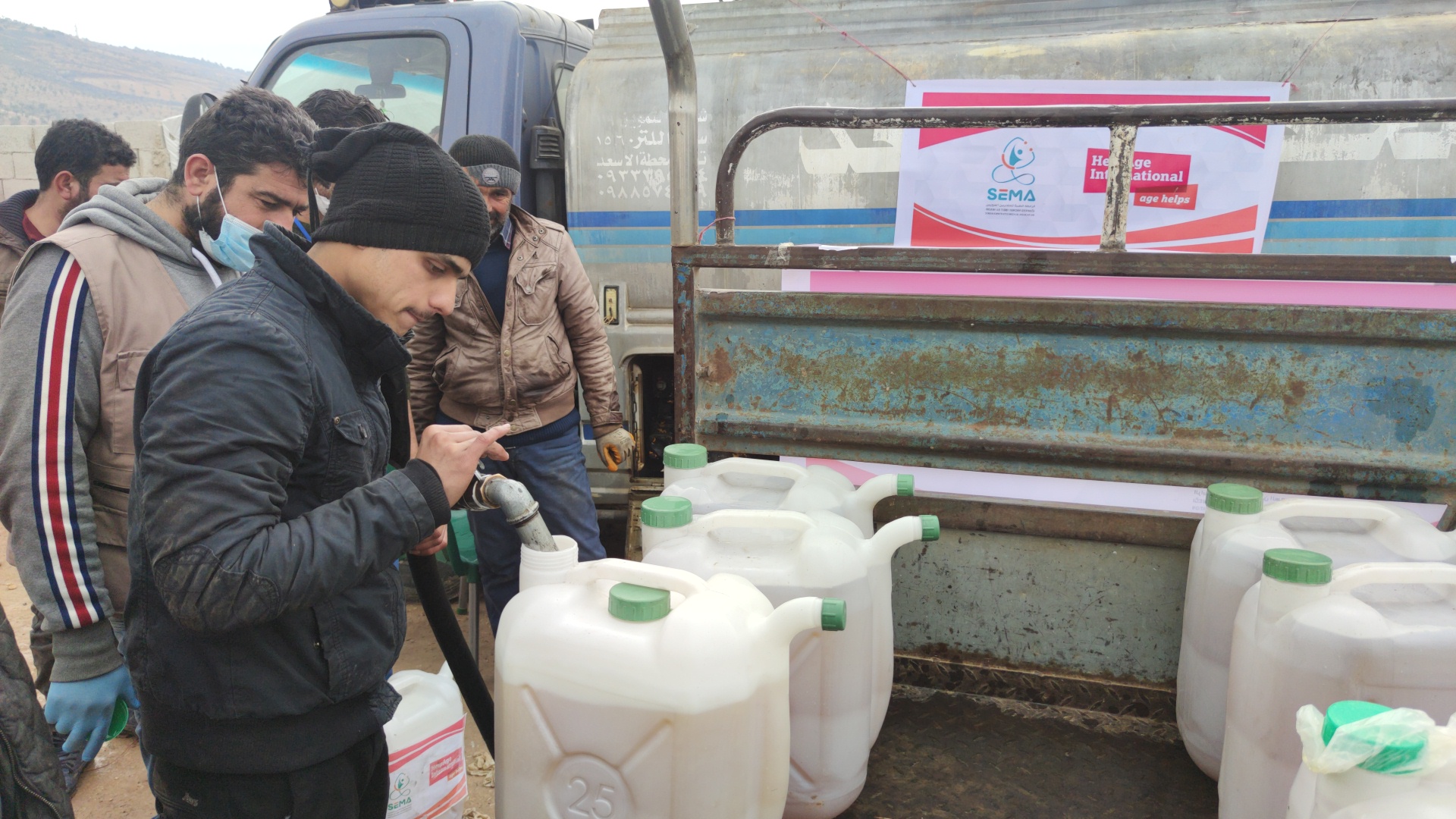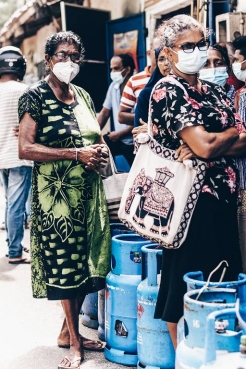
By Chris McIvor, Eurasia and Middle East Regional Representative at HelpAge International
In February as the earthquake in southern Türkiye and northwest Syria began to manifest its terrible consequences, we were confronted with images of survivors huddling in the cold and desperately trying to find blankets to keep warm. In Ukraine among several of the refugee centres that HelpAge supports, a principal request has been fuel for heating and generators to provide electricity.
And in numerous camps for displaced people across the globe, large areas around them are devoid of trees, as desperate people are forced to ravage the surrounding environment. Circumstances such as these prompted the focus for the humanitarian meeting I attended in Dubai in March, entitled ‘Energy and Aid’ at the Dubai International Humanitarian Aid and Development conference – DIHAD.

Fuel distribution to households in Aleppo, Syria. © Ammar Nassar/SEMA
At this point, let me confess to some ignorance. While I was aware of the need for food, water, shelter, medicines and protection for refugee populations, the issue of energy provision did not register in what I would have considered a priority list. Yet one speaker pointed out that only 10 to 20 percent of energy needs of refugee populations are met by humanitarian aid. One consequence of this is that food rations are often sold because people need to buy fuel to be able to cook the remainder.

Older people queue for hours to access fuel for cooking.
© HelpAge Sri Lanka
Another speaker pointed out that 80 per cent of refugee populations are dependent on biomass for their energy needs, a factor which helps explain why environments around camps are often damaged beyond repair. As to the carbon footprint of the humanitarian community itself, another surprising fact, for me at least, was that collectively we employ a fleet of over 100,000 diesel consuming vehicles to deliver emergency aid every year, with costs of over 1 billion dollars. In fact, one agency confessed that it would cost them less to employ someone in one of their offices to close doors and switch off air conditioning than to pay the electricity bills arising from wastage.
Of course, it is always easier to voice criticism than identify solutions but thankfully a generous part of the Dubai meeting was about alternatives, such as creating efficiencies in transport, providing solar power in camps, introducing ways in which electricity can be provided from national grids to reduce the dependency on wood for fuel. As well as the overall point that energy needs have to be factored into humanitarian response as much as any of the other basic necessities.
Finally, one of the things that one looks for in events of this kind are opportunities to promote one’s cause. On that front for HelpAge it seems that much more needs to be done. Across the two conferences I have attended in Dubai over the last two years hardly any mention has been made of the needs of older people, while children, girls, unemployed youth, younger women, people with disabilities etc are routinely mentioned. And when older people have been referenced it has only been as recipients of charity and people with special needs.
While the vulnerabilities of some older people have to be acknowledged, that is not the whole story of why they need to be included in humanitarian response. What about the contribution they can make?
